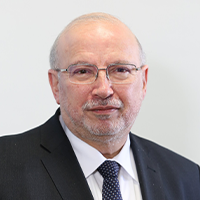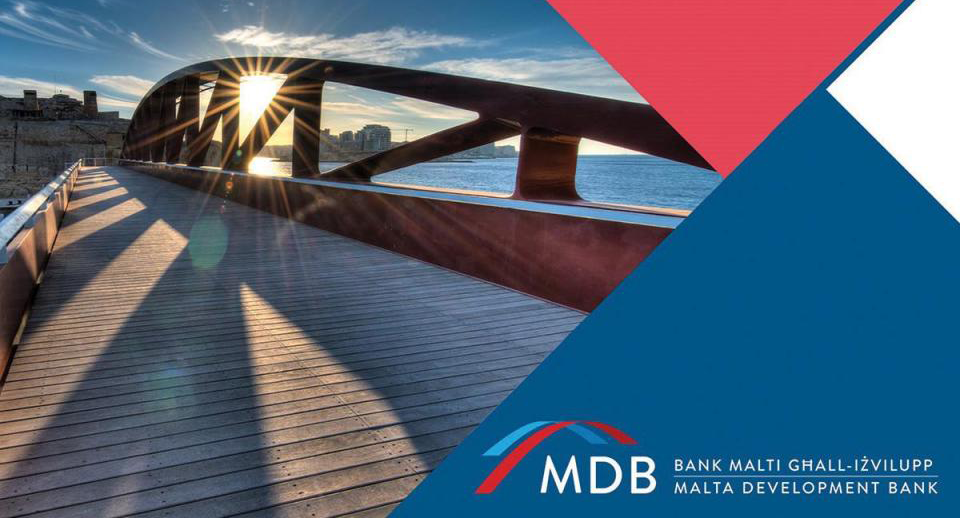
By Prof. Josef Bonnici - Chairman, Malta Development Bank
The COVID-19 pandemic has caused unprecedented disruption to the global economy, and no less to our country. Throughout these challenging times, the Malta Development Bank (MDB), a relatively new institution on the island, quickly adapted to become a key channel for the delivery of anti-crisis measures.
Among the support initiatives to address the pandemic repercussions, the most impactful was the MDB COVID-19 Guarantee Scheme, which has provided a lifeline to more than 570 businesses employing more than 40,000 employees. Through this scheme the MDB has already facilitated more than €440 million in working capital loans through nine local commercial banks, and there is still space for an additional €340 million worth of loans available. This scheme helped businesses with their salaries, rental payments, utility bills, loan repayments and other payments of an immediate nature.
However, as a much-sought after normality approaches, the MDB is shifting gears in order to be able to support Malta’s economic transformation by providing the right tools for sustainable, longer-run growth, in line with the wider national and European objectives.
Through its schemes, the MDB intends to facilitate investment in green infrastructure projects, innovation and digitalisation, as well as projects with a social dimension. In this context, the Bank’s policies and incentives are being re-aligned to priorities being pushed by both the national Government and the European Union as key elements of the recovery.

In particular, the MDB is working on a new co-lending scheme through which the Bank will enhance its risk absorbing capacity and ensure a more intensive benefit to the ultimate beneficiaries. This initiative will consist of a financial product where the MDB would be making available a portfolio of €100 million through co-lending with commercial banks on a 50-50 basis, as well as providing a partial guarantee on the commercial bank’s share of the loan. We see commercial banks as essential partners in our efforts to provide development finance.
As Malta’s promotional bank, the MDB is also seeking to mobilise EU guarantees in order to strengthen the Bank’s role as an enabler of growth. The available support at the EU level can enable the MDB to take on additional risks and provide even more attractive financial instruments that reflect the market needs post-pandemic. Through the InvestEU Programme, the EU is expected to enable the mobilisation of an unprecedented €400 billion to be invested across Member States from 2021 to 2027. Unlike similar schemes implemented in the past, promotional banks such as the MDB, can apply to become direct implementing partners of the EU Budget. In this context, the MDB is undergoing the necessary procedures to fulfil this role.
These schemes will complement the existent SME Invest scheme through which the Bank facilitates easier access to finance through reduced collateral requirements and costs. Enterprises may seek bank financing for new investment up to a maximum of €750,000, at attractive interest rates and reduced collateral obligations due to the 80% guarantee provided by the MDB under the Scheme.
As has been the case throughout the past months, the MDB will be strengthening its proposition, and role, to encourage and facilitate Malta’s rapid resurgence as a vibrant and fast-growing economy in the months ahead.
Professor Josef Bonnici graduated B.A. (Hons) in Economics from the University of Malta (1975), and read for his Masters and PhD (1980) from Simon Fraser University, Canada specialising in the areas of Monetary Economics, Macroeconomics and Econometrics. He was awarded a Doctor of Humanities, Honoris Causa from Rikkyo University in Japan (1996). He has published books and many articles in professional Economics journals, and lectured at Deakin University in Australia, and Simon Fraser University in Canada. From 2011 to June 2016 he was Governor of the Central Bank of Malta and member of the Governing Council of the ECB. In December 2016 he was appointed by the Governing Council of the ECB as one of two external members in the Audit Committee of the ECB. In December 2017 he was appointed Chairman of the newly established Malta Development Bank. He currently also holds the position of Professor in the field of Economics at the University of Malta, focusing primarily on Monetary Policy, Macroeconomics and Econometrics.

